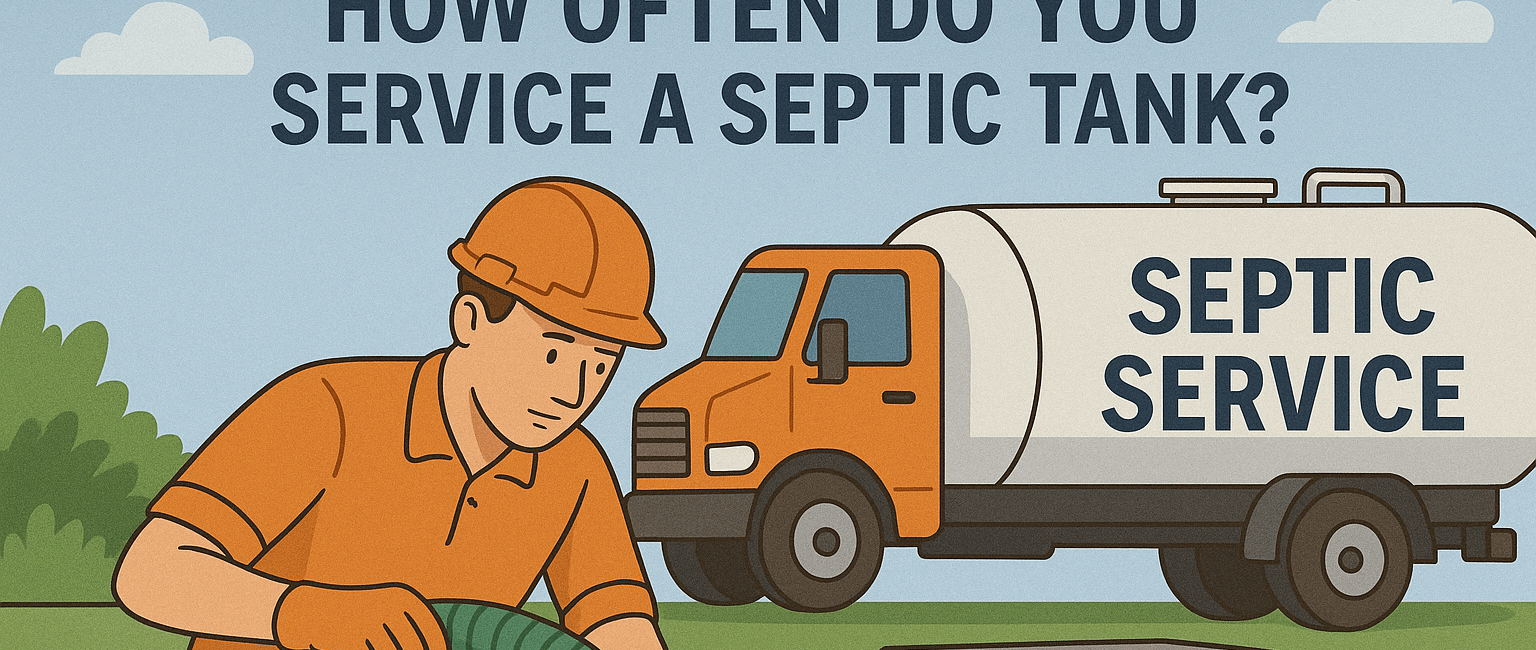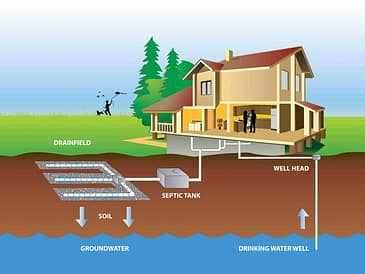Most homeowners think their septic tank will last forever, but in fact, up to 10 percent of them will need service within a single year.
One of the most common reasons that septic systems need to be serviced is overload. Even though this is unlikely to happen to your system, regular maintenance is still crucial to ensure that it is working properly.
Pumping a septic tank
Pumping a septic tank is not a difficult DIY project. There are a few things to keep in mind, though. First of all, you will want to make sure you have the right size tank for your home. Ideally, you should have a tank of at least 1,000 gallons, although smaller units may be available. It is also a good idea to get your tank inspected regularly to ensure that it is functioning properly. You should also have your tank pumped whenever the scum layer reaches the bottom six inches.
The frequency of septic tank pumping depends on how many people live in the home and the size of the tank. Ideally, a tank should be pumped every two to three years. However, if you don’t use your septic system much, you may want to wait for up to 10 years before pumping it. By pumping the tank regularly, you’ll be preventing unnecessary buildup in the tank and it will also prolong its life span.

Depending on the size and age of the tank, septic tank pumping can take anywhere from 15 minutes to an hour. The process involves removing the septic tank’s contents and cleaning the outlet effluent filter. This prevents solid waste from clogging the tank and entering the drain field. When the process is complete, the lid will be replaced and the vacuum truck will leave the property to dispose of the waste in a non-hazardous place.
Another sign that your septic tank needs to be pumped is an odor coming from your drainfield. It’s important to have your tank pumped regularly to prevent leaks and other problems with your septic system. These odors can be caused by the leakage of hydrogen sulfide and methane gas. These gases are highly toxic and can even burn your eyes.
If you don’t want to deal with the smell and hassle of pumping a septic tank yourself, you should find a reputable company to handle the job. Prices vary widely depending on the size of your tank and the location. For instance, larger septic tanks typically require more work.
The technician will also need to check your system. If it’s an older system, it might be more problematic than a new one. Ideally, you should schedule your septic tank pumping service at least two weeks before a septic inspection. This will allow enough time to detect any hidden issues. A plumber will also be able to tell you about the best way to maintain your system.
If you’re considering hiring a professional to perform the pumping service, you can call Metro Plumbing, Heating, and Air for an estimate. Their trained technicians will be able to safely pump your tank, remove solid waste, and dispose of it in a legal manner. You should also ask neighbors if they recommend any companies. Another way to find a quality service provider is to look for online reviews and check with your local Better Business Bureau. You can also contact your home warranty provider to make sure your home is covered.
Inspecting a septic system
One of the most important things to inspect before buying a home is the septic system. A properly functioning septic system will keep your water and sewer systems clean and efficient. It should be inspected at least once a year. It is also important to have a septic inspection done before selling your home. This inspection should be part of your real estate contract.
A failing septic system can release contaminated groundwater and water that can be hazardous to human health. This type of failure can occur as a result of tainted well water or irreversible damage to the tank itself. To inspect your septic system, you should look for grass growing over the system.
A septic inspection is very different from a home inspection. A professional will inspect the tank visually and check for leaks, clogs, and tree roots. They will also inspect the drain field to ensure that it is free of debris. You can ask your inspector to pump the tank if necessary.
A septic inspector will check three components of a septic system during an inspection: the septic tank, distribution box, and leach field. All of these components should be in proper working order. You can tell if something is wrong with your septic system if you notice standing water over it, bad odors, or bad water coming from your yard.
A yearly inspection is important for your septic system’s overall health. A failure to inspect your system can cost you a lot of money, so it is important to keep it in good shape. This will keep you and your family safe and healthy. If you don’t inspect your septic tank, you may be spending money that can be better spent elsewhere.
It is important to have a professional inspect your septic tank and drainfield at least once every three to five years. You should also have your system pumped at least once a year, if you have a large family. These visits should not cost a fortune, and you should always keep up with the schedule.
A septic tank is a tank that collects wastewater from your home. This liquid then passes through a special drain field called an absorption zone. The drain field, on the other hand, is composed of gravel that acts as a drain field. It prevents the waste from entering the soil. Moreover, it extends the life of your septic system. If your septic tank has a baffle that is filled with solids, then it means that there is an overflow. Ideally, the sewage level is several inches below the top of the baffle. If it is higher, then the problem is an obstruction.
Depending on the level of detail and the size of the tank, a septic inspection can cost $300 or more. In some states, health departments offer inspections at a reduced rate to residents. It is also helpful to have a septic inspection done on your property if you are selling your home. A properly functioning septic system should last for twenty to thirty years. However, it is important to have it inspected and pumped regularly to avoid costly repairs.
Avoiding dumping non-biodegradables into a septic tank
Non-biodegradable materials can clog pipes and create a serious health hazard. These materials include cigarette butts, paper towels, and condoms. These items should not be dumped into the drain or disposed of in the toilet. Also, never dispose of grease or cooking oils down the drain. Use a garbage can to dispose of these materials. In addition, do not flush non-biodegradable chemicals like pesticides, disinfectants, and water softeners into the septic system. Some household cleaners are also non-biodegradable and will dilute in the septic tank, so make sure to use a garbage bag for these products.
To avoid clogging your septic system, try to avoid flushing these materials. Grease and cooking oil can cause blockages, and you should never dump them into your septic tank. Instead, you can place a grease trap to collect food preparation wastewater and prevent it from flowing into the septic tank.
Other waste items that clog septic systems include cat litter, coffee grounds, ear plugs, sanitary napkins, and cigarette butts. These items will not degrade in the septic tank, and they can eventually block the system completely. In addition to blocking the pipes, they can also pollute ground water.
Another way to avoid clogging your septic tank is by composting your waste. By composting, the decomposed produce will provide fertilizer for the soil, instead of filling the septic tank with non-biodegradable waste. To keep your septic tank clean, you should also try to use toilet paper that degrades easily when wet.
Bleach is another non-biodegradable that you need to be careful with. This chemical is very toxic for bacteria and should be used sparingly. Bleach will kill the good bacteria in your septic tank and can cause groundwater contamination. Also, don’t use a lot of laundry detergents or dishwashing detergents. Most of them contain surfactants and phosphates, which can harm the beneficial bacteria in your septic system.
Another non-biodegradable material that can clog your septic tank is garbage. If you don’t compost food, coffee grounds and fruit and vegetable scraps can build up in your septic tank and make a mess. You need to remove this sediment before it becomes harmful to your septic system. Avoid dumping these materials into your septic tank by using a garbage disposal.
Regardless of the type of septic tank you have, avoiding dumping non-biodegradables is very important. These materials will eventually get absorbed by the soil, causing it to become polluted and clogged. This waste can also harm private or public wells.



